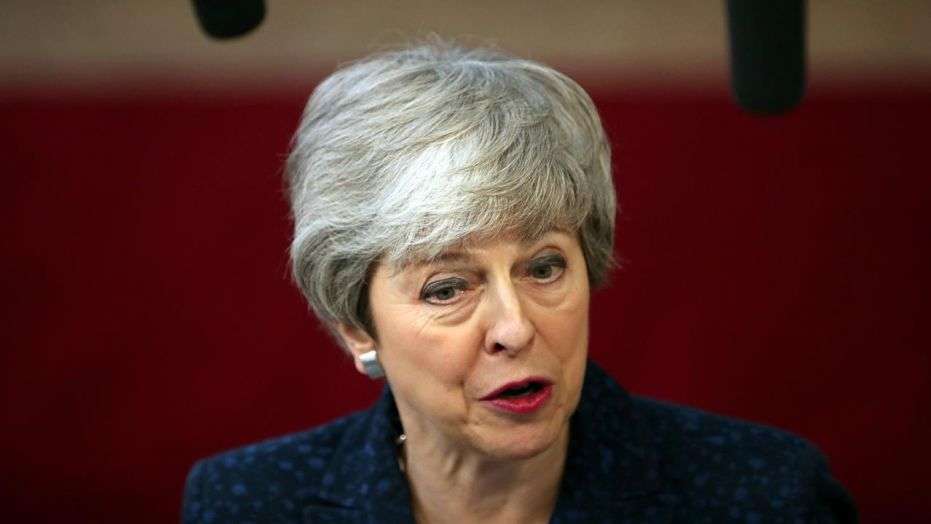London, March 25: Accused of presiding over an unprecedented national humiliation in her chaotic handling of Brexit, British Prime Minister Theresa May has all but lost control of her party and her government.
The Conservative leader has in the past won praise for her determination and ability to survive what has often felt like one long political crisis since the 2016 referendum vote to leave the European Union. But her approach to the endgame, refusing to accept MPs’ opposition to her divorce deal and agreeing to delay Brexit to try for a third time to get it through, has prompted frustration and anger on all sides.
Ministers from both the pro- and anti-Brexit camps in her cabinet have in recent weeks joined scores of Conservative MPs in defying the government in parliamentary votes. And this weekend, after yet another bruising Brussels summit for the prime minister, British newspapers were full of moves by her colleagues to oust her.
In an editorial, Conservative-supporting Spectator magazine suggested May was the “worst prime minister in our history”. It condemned her “lack of imagination, inability to lead a team or solve complex problems” — although it also accused the ruling party itself for failing to find a better leader.
May’s former director of communications, Katie Perrior, wrote in The Times newspaper that the prime minister was “a passenger at the time when the country needed a rally driver”. She backed a suggestion made by some MPs that May offer to quit if parliament backs her divorce deal, allowing someone else to lead the next stage of the EU negotiations.
The top selling The Sun tabloid also embraced this plan, praising May’s “remarkable resilience in the face of repeated humiliations, but saying it was ‘time to move on’.” “She has lost the backing of much of the country and now her party,” the paper said.
May took office after the 2016 referendum, and despite having campaigned to stay in the EU, embraced the cause with the mantra “Brexit means Brexit”. Her promise to leave the EU’s institutions and end free movement of workers delighted eurosceptic MPs, but caused dismay among many pro-Europeans.
The splits in her Conservative party became a serious problem after a disastrous snap election in June 2017, when May lost her parliamentary majority. She was forced to strike a deal with Northern Ireland’s pro-Brexit Democratic Unionist Party (DUP), and since then has struggled to keep her party and its allies together.
